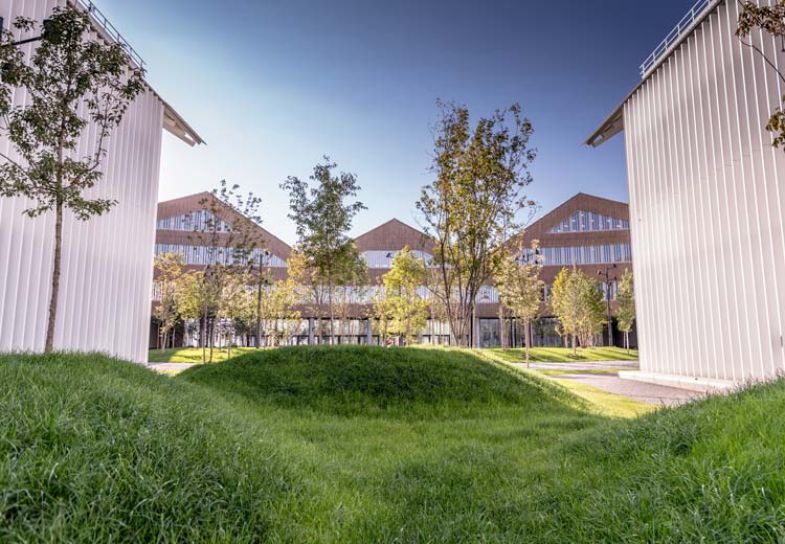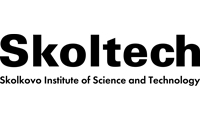
Russia-based university Skoltech is about to celebrate its 10th anniversary. In its first decade, its unique interdisciplinary set-up has supported students to thrive
This year, Skolkovo Institute of Science and Technology (Skoltech) will celebrate its 10th anniversary since it was founded in collaboration with Massachusetts Institute of Technology (MIT) in 2011. “We are just a baby in comparison with the likes of MIT and California Institute of Technology, but the past decade has definitely been a successful pathway,” says Alexander Safonov, vice-president for development at Skoltech. The institution was set up in Russia, with a unique structure that focuses on problems to solve rather than distinct departments, meaning students adopt a collaborative approach from the minute they begin their education.
Based at the Skolkovo Innovation Centre, the university’s unbounded approach attracts academics and students from across the globe. “We do not have departments but centres that are problem-based, with multidisciplinary teams. There are no barriers between departments so we might have mathematicians and biologists working together,” Safonov says. Even during the pandemic, centres have been able to collaborate virtually on projects by analysing data from past experiments, for example.
Skoltech is playing a key role in Russia’s national strategy for science and technology. Researchers from Skoltech have been working with electronics giant Philips, for example, to further the application of artificial intelligence (AI) in medical diagnoses and the predictive modelling of health conditions. Skoltech will also bring together its AI platform CoBrain with a solution from Russian financial services company Sber to create an ecosystem to assist with medical decision-making in hospitals and other health settings, having already developed risk assessment and diagnostic algorithms for the bank. “We don’t want to repeat what other Russian universities are good at. We want to look at emerging and promising areas such as AI, photonics and new materials,” Safonov explains.
As part of Skoltech’s solutions-focused approach, programmes are delivered in English and students spend their first month attending the Innovation Workshop. This compulsory intensive course is designed to foster teamwork and innovation and spark entrepreneurial instincts in students from their very first day on campus. “They learn different approaches and angles to the same problems and learn that they need soft skills in addition to their hard knowledge,” Safonov explains. “If they want to do something beyond the lab, they’ll need marketing skills, for example.” The course helps students crystallise their ambitions, he adds: “Some decide they want to be a scientist and dream of becoming a Nobel laureate; others decide they want to start a company. Skoltech gives you that choice.”
Many of Skoltech’s graduates have gone on to find international success. Adeniyi Adebayo came to Skoltech from Nigeria to complete the energy science and technology programme, graduating in 2016. During his time there he founded ProctorEdu, an online proctoring system that helps identify cheating behaviour or identity theft in exams. Adebayo was also responsible for the launch of Yango in Ghana, an international spin-off of Yandex.Taxi, one of Russia’s most popular taxi-hailing companies, which now operates in more than 17 countries. Adebayo credits the project-based learning approach at Skoltech with helping him build bonds with colleagues and taking a more entrepreneurial approach to his work.
Another alumnus, Anna Dubovik, is now head of the data science department at oil and gas giant Gazprom Neft, where she leads the advanced analytics and machine learning team. Dubovik completed Skoltech’s data science programme, taking part in numerous hackathons, a trip to MIT and getting involved in the Skoltech admissions process. Safonov describes Skoltech’s graduates as “agents of change in many companies in Russia and other countries”. Sergey Shmakov, a research scientist at Skoltech’s Centre of Life Sciences, is leading research into the role of machine learning in CRISPR modification of genomes, increasing the speed and accuracy of treatments for diseases such as cancer.
Looking to the next decade, Skoltech’s aim is to develop more project centres that focus on challenges relevant to Russian society and beyond. One such area is electric transport; the Russian government has announced a development programme aiming to produce 730,000 electric vehicles between 2022 and 2030 – up from about 11,000. Greater use of electric vehicles means high demand for suitable batteries, and Skoltech has been working with other Russian institutions on the development of novel cathode materials on which sustainable batteries are based.
Skoltech is also working with mobile operator MTS on fifth-generation mobile communications (5G), deploying Russia’s most extensive pilot zone at the Skolkovo Innovation Centre. The university has built a base station that will be ready for commercial production by the end of 2022. The base station supports the international 5G and OpenRAN standards, allowing users to enjoy the benefits of 5G while enabling operators to upgrade their networks. Using widely available components, Skoltech’s research paves the way for the 6G mobile communications of the future.
Unsurprisingly, the university retains strong ties with its founding partner, MIT, with students able to attend study exchanges and benefit from shared research programmes. There is no formal international office for other academic collaborations because its staff make the most of their diverse experiences and backgrounds. “We have faculty from across the globe who come with their own networks and rely on those connections, so we have lots of collaborations with other universities and tie-ins with companies,” Safonov says. “Science is another diplomatic language, and our community is very professional in that sense.”
The most important principle at Skoltech is collaboration, and the unique set-up of the institution and its programmes ensures this is embedded in every student touchpoint. “The simple problems in the world have already been solved. Now we have complex problems, so we need competencies from different areas,” Safonov concludes.
Find out more about Skoltech.
